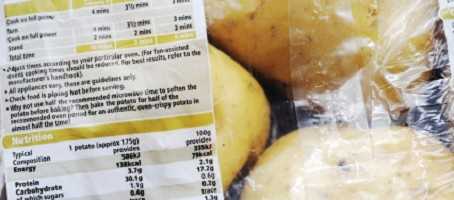A simple potato extract could potentially reduce weight gain, thereby countering obesity and type 2 diabetes, according to a new study.
The research, conducted by scientists at McGill University, found that the polyphenols in potatoes reduced weight gain in a group of mice.
The mice were fed with an obesity-inducing diet for ten weeks. The mice weighed an average of 25 grams at the beginning of the study, and quickly gained an average of 16 grams. However, the mice that were fed exactly the same diet but with the potato extract didn’t gain nearly as much weight: only seven grams were put on by these mice, on average.
Obesity increases the risk of a number of conditions, including type 2 diabetes, cardiovascular disease, and cancer.
Although the results of this study are promising, they are only a first step. It takes 30 potatoes to get the required daily dose of the extract. Eating 30 potatoes would be a massive intake of calories, and not at all advisable. The researchers hope that the extract could be made available as a dietary supplement or cooking ingredient.
Moreover, the study was only conducted on mice. Clinical trials on humans will need to be carried out to assess the viability of the research, even though mice and humans metabolise food in similar ways.
Professor Luis Agello, one of the study’s authors, said: “We were astonished by the results. We thought this can’t be right – in fact, we ran the experiment again using a different batch of extract prepared from potatoes grown in another seaso, just to be certain.”
What's new on the forum? ⭐️
Get our free newsletters
Stay up to date with the latest news, research and breakthroughs.







